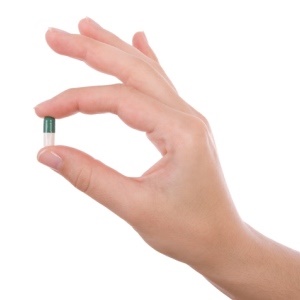
The future of medicine may be here: Researchers at the Massachusetts Institute of Technology say they've developed an ingestible capsule that can be monitored outside the body for health data, using Bluetooth® wireless technology.
The capsule could deliver drugs as well as sense the condition of its surroundings in the gut, including infections or allergic reactions, the researchers explained.
Personalised diagnostic
Once these health conditions were spotted, one of these so-called "gastric resident platform" devices could release the proper medicine in response.
The goal is "customised ingestible electronics where the gastric residence period can be tailored, based on a specific medical application," study lead author Yong Lin Kong explained in an MIT news release. He's a former MIT postdoc researcher who's now assistant professor at the University of Utah.
Kong said the 3D-printed capsule could someday become "a personalised diagnostic and treatment that is widely accessible".
The device is ingested in a standard lozenge form like a pill. But sensory arms pop open once it's inside the gut, revealing a Y-shaped device.
One of the arms contains compartments large enough to hold medicines that could be time-released over several days, the researchers said.
Human trials anticipated
At the same time, the device's sensors could monitor everything from heart rate to breathing levels and body temperature. Data might even be sent to a nearby smartphone, the MIT team noted.
The data would stay within about an arm's length range, Kong noted. That's a security feature, limiting "unwanted connections" to the data and "providing a physical isolation for additional security and privacy protection".
The capsule is right now powered by a tiny battery, but in the future it might be powered remotely or even by harnessing energy from nearby stomach acid, the scientists added.
Testing is already underway in pigs, and human trials are anticipated within two years.
One gastroenterology specialist was enthused about the technology.
"Sometimes truth is more fascinating than science fiction," said Dr David Robbins, who helps direct endoscopy at Lenox Hill Hospital in New York City. "The long fantasised dream — that we could ingest micro-robots to battle whatever ails us — just got a few steps closer to reality with this report," he said.
Unlimited potential
The device "can not only withstand weeks of submersion in pools of corrosive stomach acid but also deliver precise doses of medication — all controlled from a smartphone," Robbins said.
He believes the potential of the new device could be unlimited.
"It won't be long before we can direct not only drug delivery but also micro-surgery in the gastrointestinal tract — no skin incisions, needles or even trips to the hospital required," Robbins said.
For their part, the MIT team believes the technology has multiple uses. For example, it could release medicines as needed for people on strict drug regimens, such as people with HIV. Or it could give early warning of infection in people at high risk — patients on chemotherapy or immunosuppressive drugs, for instance.
The new research was funded by the Bill and Melinda Gates Foundation and the US National Institutes of Health. The research team has also launched a company to help develop the technology.
The findings were published in Advanced Materials Technologies.
Image credit: iStock




 Publications
Publications
 Partners
Partners










